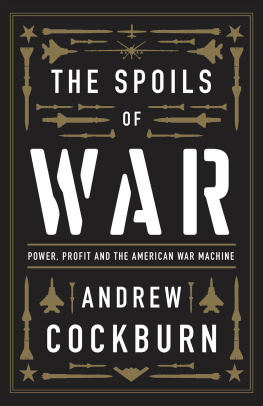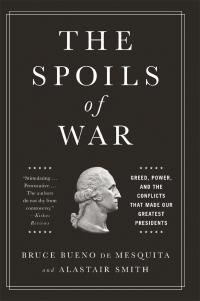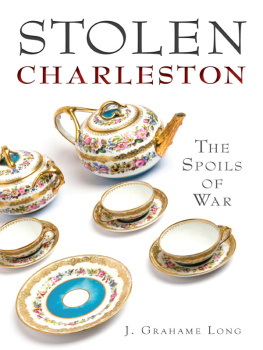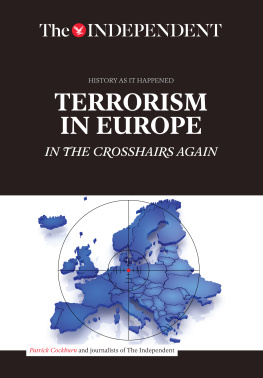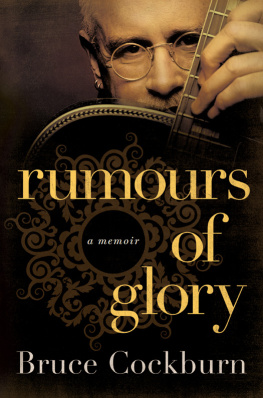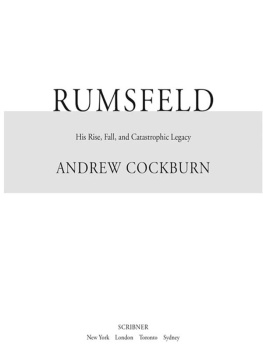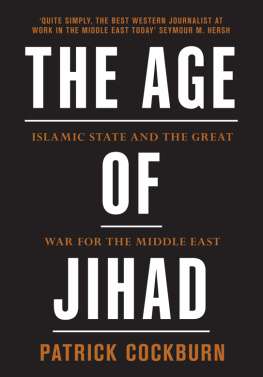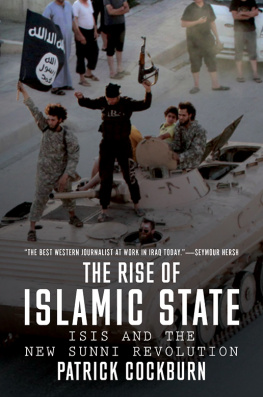Contents

The Spoils of War
The Spoils of War
Power, Profit and the
American War Machine
Andrew Cockburn

First published by Verso 2021
Andrew Cockburn 2021
All rights reserved
The moral rights of the author have been asserted
1 3 5 7 9 10 8 6 4 2
Verso
UK: 6 Meard Street, London W1F 0EG
US: 20 Jay Street, Suite 1010, Brooklyn, NY 11201
versobooks.com
Verso is the imprint of New Left Books
ISBN-13: 978-1-83976-365-6
ISBN-13: 978-1-83976-367-0 (US EBK)
ISBN-13: 978-1-83976-366-3 (UK EBK)
British Library Cataloguing in Publication Data
A catalogue record for this book is available from the British Library
Library of Congress Cataloging-in-Publication Data
A catalog record for this book is available from the Library of Congress
Typeset in Sabon by Biblichor Ltd, Edinburgh
Printed by CPI Mackays, Ltd, UK
Contents
Innumerable wars originate, wrote Alexander Hamilton in Federalist No. 6, entirely in private passions; in the attachments, enmities, interests, hopes, and fears of leading individuals in the communities of which they are members. As a principal illustration of this important truth, he cited the case of Pericles, lauded as the greatest statesmen of classical Athens, who in compliance with the resentment of a prostitute, at the expense of much of the blood and treasure of his countrymen, attacked, vanquished, and destroyed the city of the Samnians before igniting the disastrous Peloponnesian War in order to extricate himself from political problems back home.
It should come as no surprise that this version of Athenian history is not echoed by orthodox historians, despite credible sources buttressing Hamiltons pithy account. Instead, Pericles attack on Samos is generally ascribed to more respectable motives, such as his concern for protecting a democratic regime in the neighboring city of Miletus, or the need to preserve Athenian credibility as a great power.
The compulsion to endow states and leaders with responsible, statesmanlike motives for their actions is far from being confined to ancient historians. In fact, it extends across the spectrum of contemporary foreign and defense policy analysis and commentary, from academic ivory towers housing international relations and national security studies departments, to think tanks, research institutes and, of course, media of every variety. Thus, in modern times, Woodrow Wilsons maneuverings that brought a hitherto reluctant United States into World War I, or John F. Kennedys readiness to risk global immolation rather than permit Soviet nuclear missiles in Cuba, are invariably attributed to the most personally disinterested of motives. But closer examination of the record indicates that Wilson was eager to join the fighting, driven by the need to distract popular attention from his failure to enact his progressive mandate, buttressed by his personal ambition to preside over a postwar settlementthe noblest part, his friend and flatterer Colonel Edward House assured him, that has ever come to a son of man. Kennedys handling of the 1962 missile crisis might also appear to have been purely an exercise on behalf of the nations welfare. But deeper scrutiny of the record suggests that Kennedys prime consideration during the crisis was the domestic political impact of allowing Soviet missiles so close to the United States, especially in view of the imminent midterm congressional elections.
More recently, the expansion of NATO into Eastern Europe in the 1990s, despite firm promises to Moscow that there would be no such move, was supposedly prompted, as summarized by two former national security eminences for the Brookings Institute, by a desire to promote peace and stability on the European continent through the integration of the new Central and Eastern European democracies into a wider EuroAtlantic community, in which the United States would remain deeply engaged.
Actually, it wasnt. As I explain at greater length in Game On, the driving force behind the expansion, which ensured Russian paranoia and consequent instability in Eastern Europe for the foreseeable future, was the urgent necessity to open new markets for American arms companies, coupled with the prospect of political reward for President Bill Clinton among relevant voting blocs in the Midwest. Similar examples abound, most obviously, and dangerously, in the domain of nuclear forces, where strategy has indisputably been driven by competing needs of rival bureaucracies (most obviously, the US Air Forces adoption of a counterforce doctrine once the Navys submarine-launched missile force rendered otiose its original function of deterrence) and arms corporations.
Outsiders generally find it hard to grasp an essential truth about the US military machine, which is that war-fighting efficiency has a low priority by comparison with considerations of personal and internal bureaucratic advantage. The Air Force, for example, as I explain in Tunnel Vision, has long striven to get rid of a plane, the inexpensive A-10 Warthog, that works supremely well in protecting ground troops. But such combat effectiveness is irrelevant to the service because its institutional prosperity is based on hugely expensive long range (and perennially ineffective) bombers which, as described in Flying Blind, pose lethal dangers to friendly soldiers, not to mention civilians, on the ground. The US armed services are expending vast sums on developing hypersonic weapons of proven infeasibility (see Like a Ball of Fire) on the spurious grounds that the Russians have established a lead in this field. Despite the fact that hundreds of thousands of veterans of the post9/11 wars suffer from traumatic brain injury induced by bomb blast, the Army has insisted on furnishing soldiers with helmets from a favored contractor that enhance the effects of blast (The Military-Industrial Virus). The Navys Seventh Fleet arranged its deployments around Southeast Asia at the behest of a contractor known as Fat Leonard, who suborned the relevant commanders with the help of a squad of prostitutes.
Fat Leonards inducements were not of course limited to carnal delights. The corrupt officers were also in receipt of quantities of cash (in return for directing flotillas to ports where he held profitable supply contracts), thus confirming the timeless maxim that follow the money is the surest means of uncovering the real motivations behind actions and events which might otherwise appear inexplicable. For example, half the US casualties in the first winter of the Korean War were due to frostbite, as I learned from a veteran of the conflict who related how, in the freezing frontline trenches, soldiers and marines lacked decent cold weather boots. Like some threadbare guerrilla army, G.I.s would therefore raid enemy trenches to steal the warm, padded boots provided by the communist high command to their own troops. I could never figure out why I, a soldier of the richest country on earth, was having to steal boots from soldiers of the poorest country on earth, my friend recalled in describing these harrowing but necessary expeditions. The richest country on earth could of course afford appropriate footwear in limitless quantities. Nor was it skimping in overall military spending, which soared following the outbreak of war in Korea in 1950. To the casual observer, it might seem obvious that the fighting and spending were directly related. However, although the war served to justify the huge budget boost, much of the money was diverted far from the Korean peninsula, principally to build large numbers of B-47 strategic nuclear bombers as well as fighters designed to intercept enemy nuclear bombers, of which the Russians possessed very few and the Chinese and North Koreans none at all.

